
Achemon Sphinx Moth 6925F jvpowell Flickr
The caterpillars are boldly patterned hornworms that may range from green to black with yellow markings. The adult is the most common "hummingbird moth" found in the western US. Hummingbird or Sphinx Moths Common to Colorado. (Adult Stages of Hornworms) Common Name. Scientific Name.
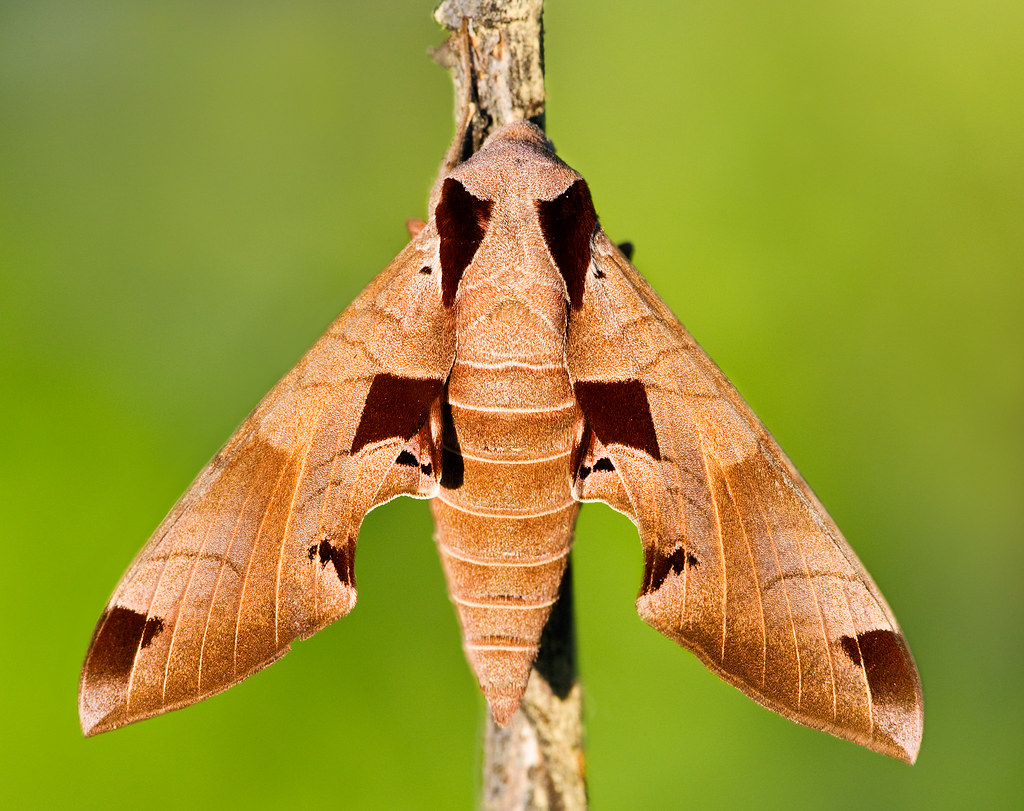
Achemon Sphinx Moth © Jim Gilbert 2008 all rights reserved… Flickr
Description and Distinctive Features: The achemon sphinx is a large, heavy-bodied moth with a wing span of about 3.5 inches. The forewing is pinkish brown with a squarish dark spot along the edge. The hindwing is mostly pink, with brownish markings along the edge. Most commonly observed are the full-grown larvae.
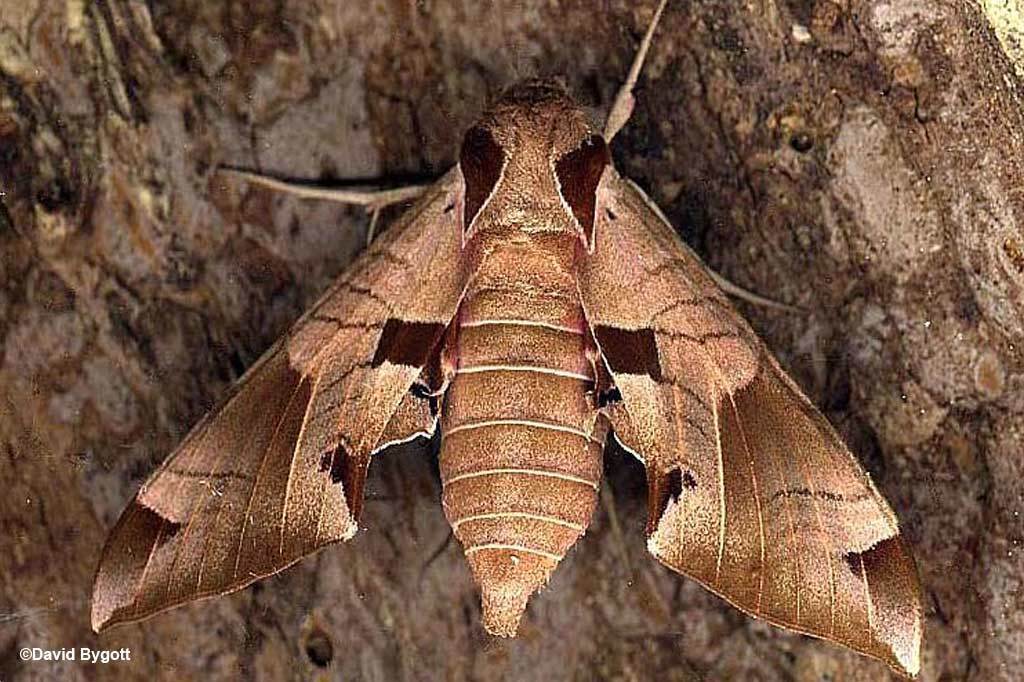
Achemon Sphinx (Pennsylvania Moths) · iNaturalist
Some common species you might encounter include the Achemon sphinx moth and the tomato hornworm. Pupae usually overwinter in the soil, inside a brownish case. When the temperature rises, they emerge as adults and begin their short, active lives. Sphinx moths are also known for their fast flying speeds, clocking over 30 miles per hour.

Achemon Sphinx What's That Bug?
Adult description: This is the smallest moth in the genus Eumorpha in North America with forewings only 42-49mm in length (2). The base color of the body and forewings is brown with a black basal rectangular area. Large dark brown triangles are present on the sides of the thorax. The hindwings of this species are a salmony pink.
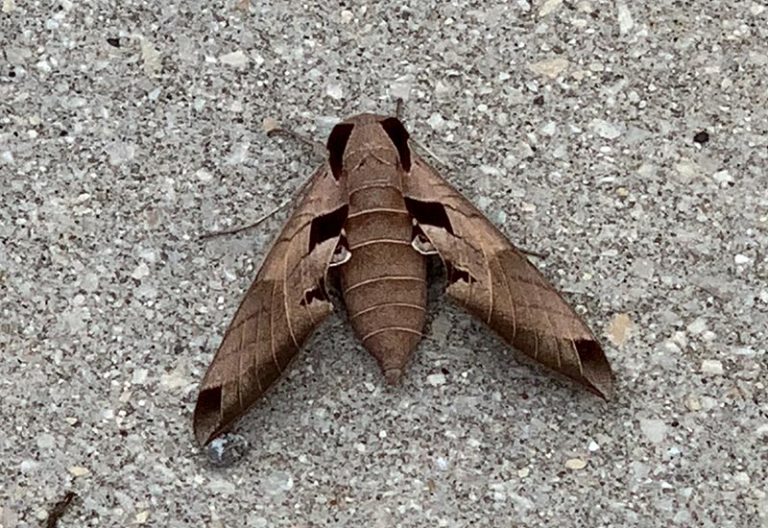
Achemon Sphinx Moth What's That Bug?
The achemon sphinx (Eumorpha achemon) is a pinkish-brown moth that can be found in woods, shrubbery, and gardens.The caterpillars feed on grapes and ampelopsis, but the adult moths only eat nectar. The females lay their eggs on surfaces of old leaves, and when they hatch, the caterpillars burrow into the soil.

Achemon Sphinx (Moths of Rosewood Nature Study Area) · iNaturalist
Subfamily: Macroglossinae Identification: Upperside of wings is light pinkish brown. Forewing has a squarish dark spot at the center of the inner margin; hindwing is mostly pink with a broken black line separating the pink from the brown border. Wing Span: 3 5/16 - 3 3/4 inches (8.7 - 9.6 cm).

Achemon Sphinx Moth Identification, Life Cycle, Facts & Pictures
It is a part of the hornworm group of caterpillars thanks to a long spine, or "horn", at the end of its body. As the caterpillar grows and matures, the horn is eventually lost and an eyespot develops instead. This species feeds on the leaves of grapevines and is known to be a pest in vineyards.
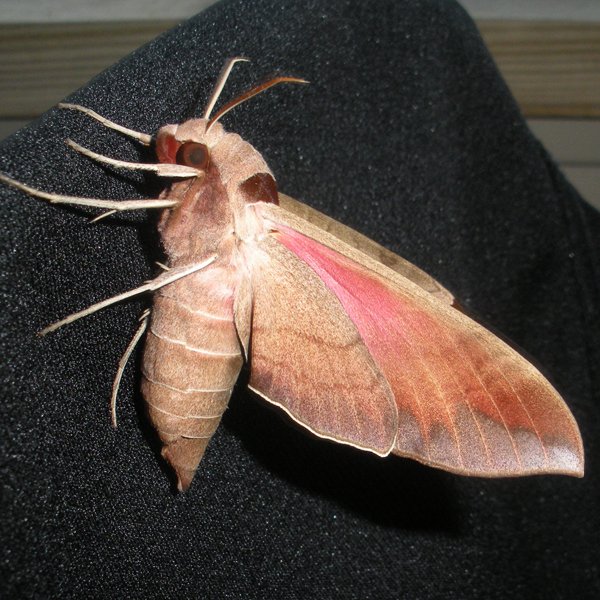
Achemon Sphinx Moth (Eumorpha achemon) Insects of Iowa
Sphinx achemon Drury, 1773 Sphinx crantor Cramer, 1777 Pholus achemon trigon Gehlen, 1926 Eumorpha achemon, the Achemon sphinx, is a moth of the family Sphingidae. The species was first described by Dru Drury in 1773. Distribution. It is native to North America, where it is known from most of the United States,.
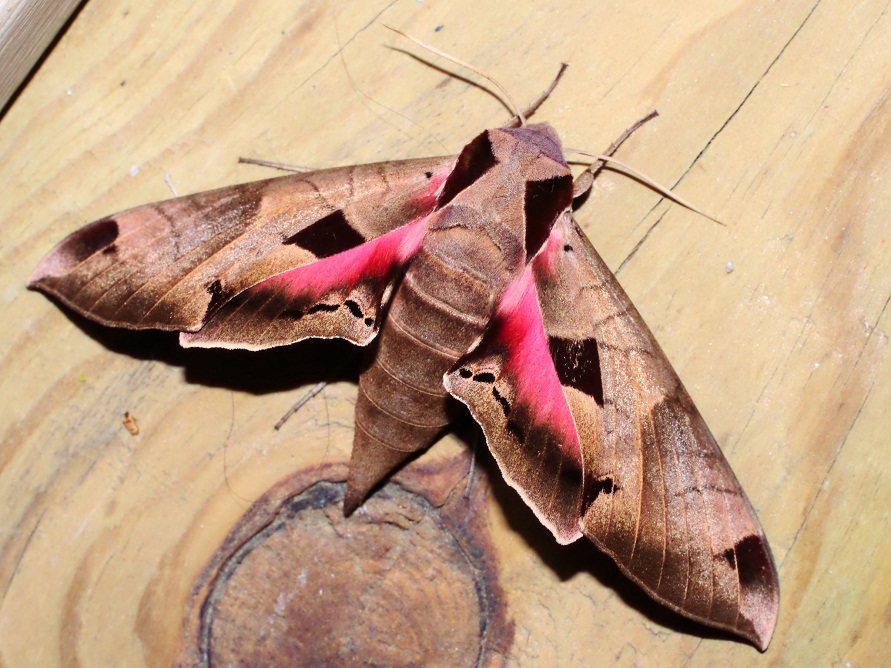
Achemon Sphinx Moth Identification, Life Cycle, Facts & Pictures
Identification Adults. Eumorpha achemon is a very large moth (FW length 44-45 mm) with boldly geometrically-patterned tan and dark brown thorax, a similar forewing pattern, and bright pink hindwing. The forewing is long and narrow with a slightly hooked tip. It is medium-dark gray-tan, lighter gray on the basal and posterior forewing, and darker and browner toward the outer margin.

7861 Eumorpha achemon Achemon Sphinx 1c (Stlw) Had a gre… Flickr
Eumorpha achemon (Achemon sphinx) is a moth of the family Sphingidae. It is native to North America, where it is known from most of the United States, southern Canada, and northern Mexico. It is rare or absent in the Pacific Northwest, Great Basin, and Southeastern United States except Florida.
Achemon Sphinx moth outside my front door today (2 more in comments) pics
In Greek mythology, Achemon (also spelled Acmon) was one of two mischievous brothers called the Cercopes Size Wingspan 87-96 mm. ( 1) Larva probably similar to Pandorus sphinx, to about 90 mm (3.5") Identification

achemon sphinx moth hanging out just outside of epcot at the flower
The Achemon Sphinx Moth: A Lovely Beast, Indeed Author: Kathy Keatley Garvey Published on: June 19, 2020 Eumorpha achemon, found at Il Fiorello Olive Oil Co., Fairfield. (Photo by Ann Sievers) It is indeed a "lovely beast," as lepidopterist Art Shapiro, UC Davis distinguished professor of evolution and ecology, says.

Achemon Sphinx Moth The Daily Garden
Species Page at Bill Oehlke's moth website - Eumorpha achemon; Species Page at Block Island Moths; Species Page at BugGuide.Net; Species Page at Mass Moths; Species Page at Pacific Northwest Moths; Species page at Moths of North Dakota. Tuttle, J. P., 2007. Hawk Moths of North America: p. 172; pl. 1.6.

CalPhotos Eumorpha achemon; Grapevine Sphinx Moth
The Achemon sphinx moth caterpillar is cylindrical and hairy, growing to a length of about 3 inches. Its colors vary from reddish-orange to light green to brown or tan. The younger larvae have a long and flexible spine on their abdominal tip. They have a reputation for feeding voraciously, infamous as a vineyard pest. Achemon Sphinx Moth Larvae

Achemon Sphinx What's That Bug?
The Achemon sphinx ( Eumorpha achemon) is a moth of the Sphingidae family. It is native to North America, where it is known from most of the United States, southern Canada, and northern Mexico. It is rare or absent in the Pacific Northwest, Great Basin, and Southeastern United States except Florida.
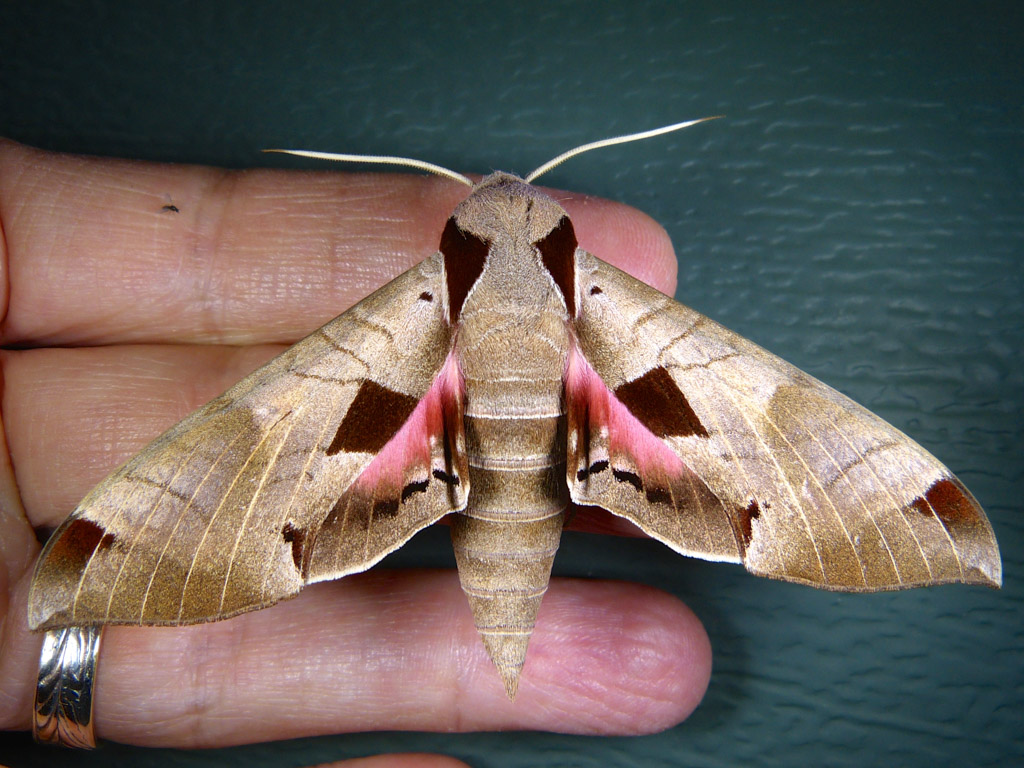
Eumorpha achemon Achemon Sphinx Prairie Haven
Achemon sphinx moths are the smallest in the genus Eumorpha, but are large in comparison to moths in general. They have a body length of up to 2 inches and wing spans from 3.4 to 3.8 inches. At top of page: An Achemon sphinx moth caterpillar. Above: An Achemon sphinx moth rests on a Stella D'Oro lily. Photos by Jeff Mitton.